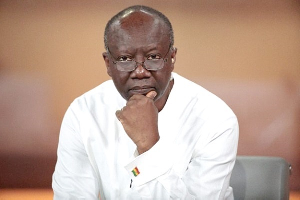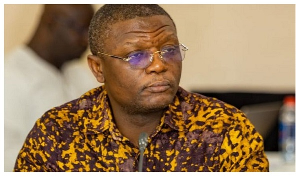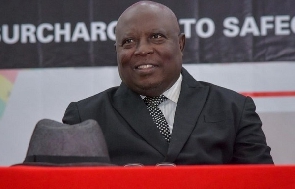The idea of establishing a new medical centre at our premier University (University of Ghana, Legon) was part of Dr Nkrumah?s grand plan of making the university a seat of excellence. Dr Nkrumah put that plan on hold when he discovered that the country was bankrupt in 1964/65. Since then various governments have come and gone with none having any coherent plans to revive Dr Nkrumah?s pet project.
As Quaye stated in his article, establishing a medical centre at the campus would enable our medical students to be close to centre and thus cut down on the time consuming journey that they have to make to Korle Bu. However the core facilities of the school should be maintained at Korle Bu, such as patient based clinical research and the various laboratories that enable our medical research students to conduct their research.
Ghanaian doctors trained at Korle Bu and Okomfo Anokye are among the best trained doctors in the world and where ever they happens to be, our doctors have excelled. Sadly we as a nation do not benefit much from the doctors that we have been training year in and year out. In his research on the impact of skill migration on the sending countries, Amartyan Sen noted that there are more Ghanaian doctors practicing in Europe and North America than in Ghana. About 90% of these medical personnel were trained in Ghana.
Quaye?s notion of the new medical centre attracting students from across the continent and the income that the centre would generate, though is correct, the long term view should be to attract back our brilliant doctors as we move towards our dream of achieving middle income status.
Since the beginning of the 21st century, Ghanaian professionals who left the homeland over the past 3 decades are returning to invest as well as to help with the development of their homeland. Policies put in place by the current NPP government seems to point Ghana in the right direction and if they are followed by the letter, then Ghana can make a head way in terms of uplifting its citizens from poverty.
As one of the most peaceful and stable countries in sub-Saharan African, Ghana has got the potential to be the first African country south of the Saharan (excluding South Africa) to achieve rapid industrialisation.
In order to do this the Ghanaian government should remodel its ?Poverty Reduction Strategies?. This strategy should include free access to Primary Education and Primary Health Care with much prominence going into gender equality. In the field of Primary Health Care, Ghana?s medical schools at University of Ghana, Legon, and Kwame Nkrumah University of Science and Technology should be given a pivotal role in the fight against opportunistic diseases that hamper child development. And in this aspect that I do agree with Quaye that by establishing a medical centre at Legon and K.N.U.S.T (Kumasi) would be beneficial to the country. In the long term the Ghanaian government should increase funding in the University of Development Studies and establish a medical school at that University (On the same line as School for Tropical diseases, London).
As Ghana strife to become a middle income country, she will need highly sophisticated institutions to deal with the demand of the many problems that will flood into the country from the countries in the sub-region. And as Quaye rightly stated, this is the time to start laying foundations for these institutions. Especially establishing a tropical disease Medical Centre at the University of Development Studies in Tamale will become more important for the northern sector of the West African Region. The march towards this noble dream of achieving middle income status by the year 2020 will demand much discipline on the part of all stakeholders. The role being played by all, including the Diaspora constituency projects Ghana as the only country that can help uplift the whole West African sub region out of poverty. Ghana has got the potential of becoming the true gateway to the whole West African market. With the right infrastructure in place, the country can regain its past glory. This is the time that Ghana needs its skilled professionals most. In all the developments that has taken place of recent late, the role played by this constituency (Skill Migrants) has been pivotal. As studies in the emerging countries of East and South Asia and recently in Eastern Europe, their influence on their homeland can be dramatic. The site of our professionals arriving at Kotoka International Airport to help with the industrialisation of our homeland and not arriving as tourists would be the day that Ghana will come of age. That was dream of Osagyefo Dr Nkrumah and Dr Busia when they established the study abroad policies in the 1960s and 1970s. Seeing those Ghanaians coming back with the skills acquired abroad never materialised due to events beyond the control of our mothers and fathers who were the beneficial of those programmes. In the 21st Century the sons and daughters of these pioneers are repaying the debt as the huge inflows ascertain.



















